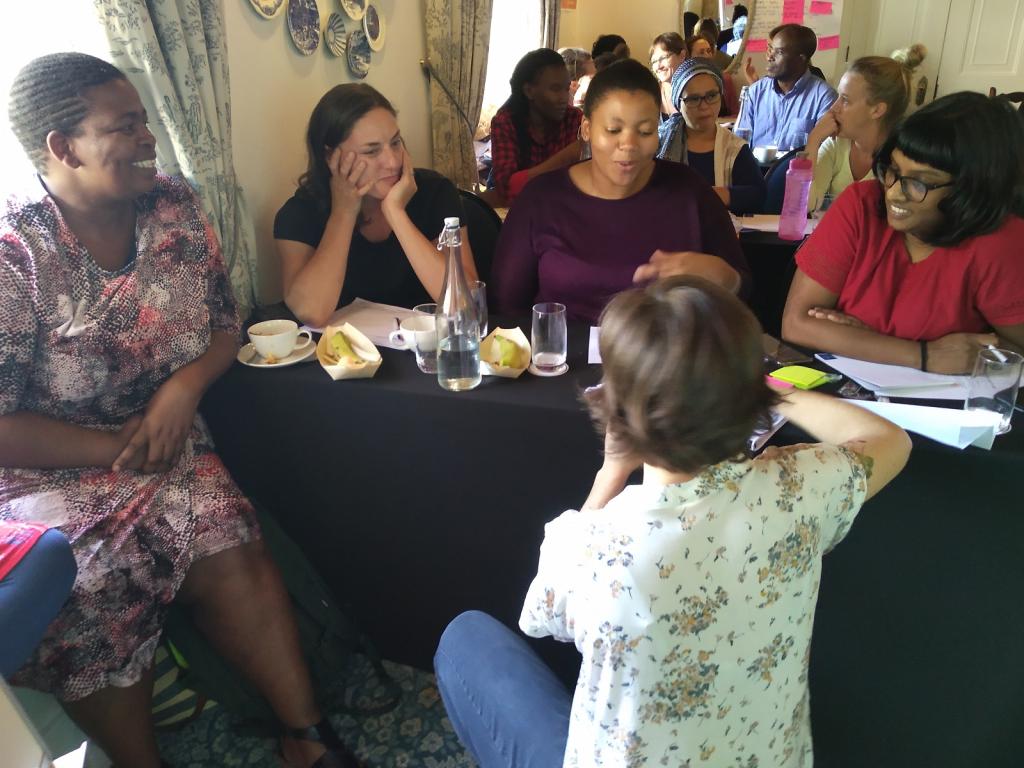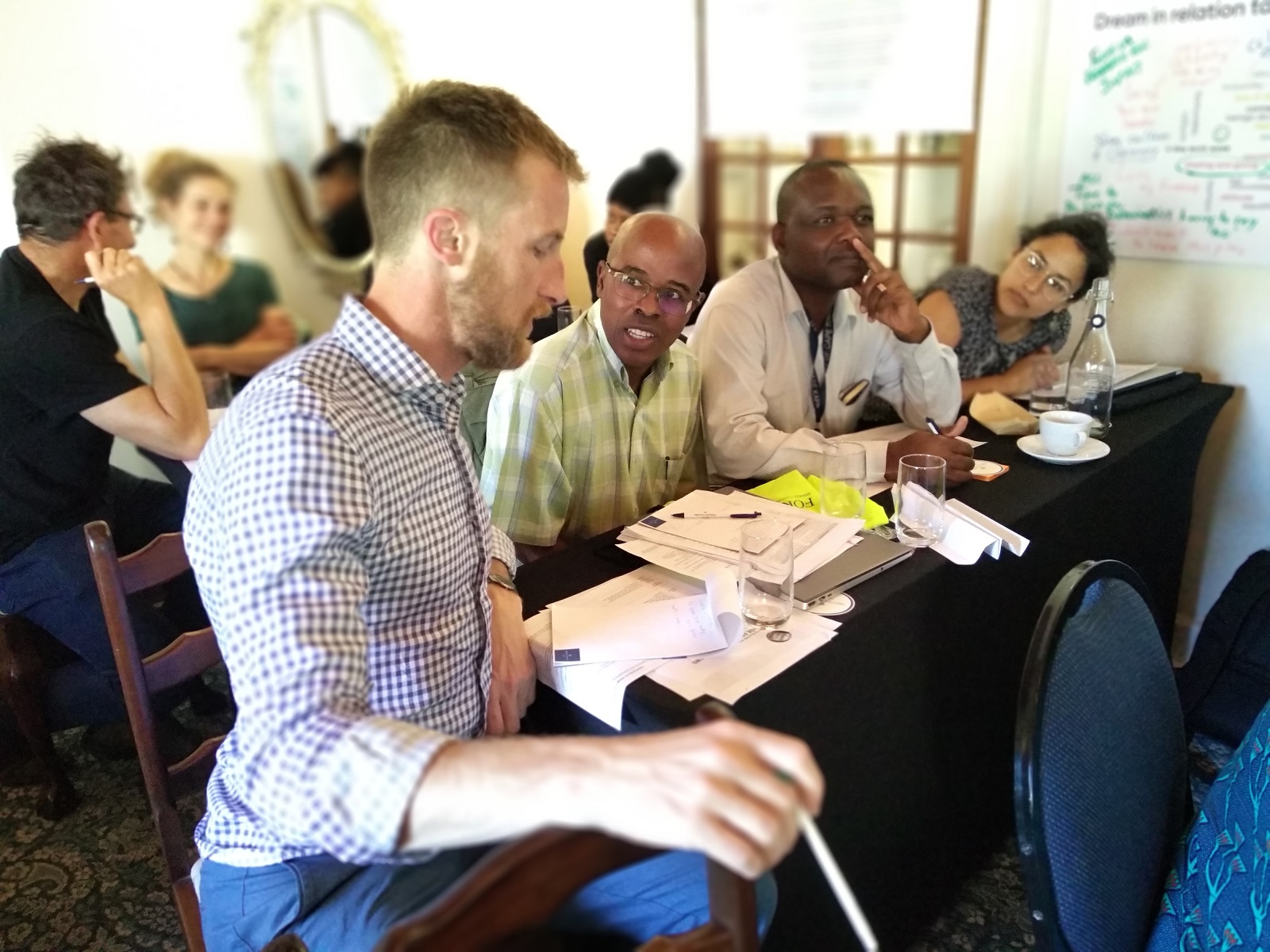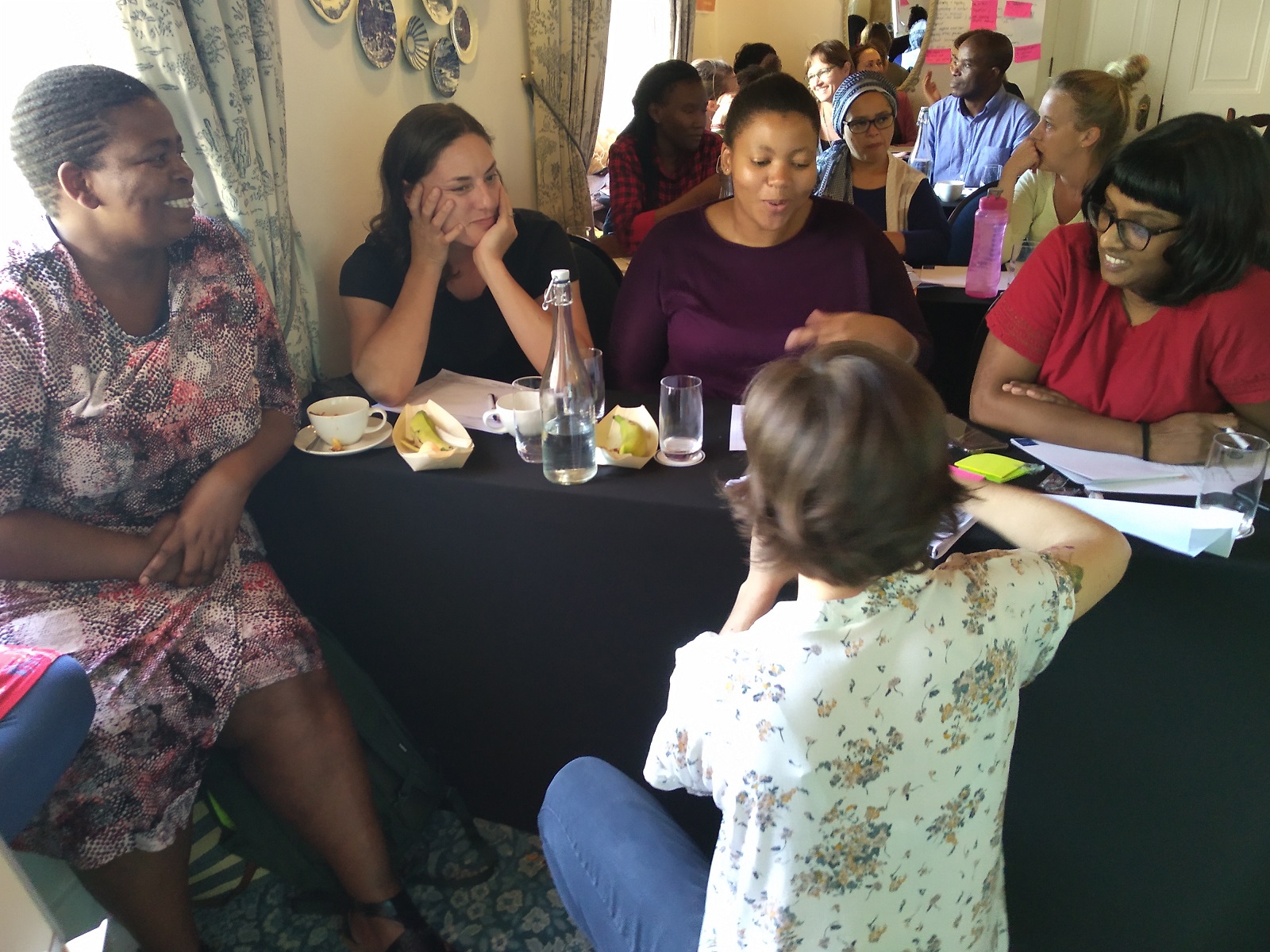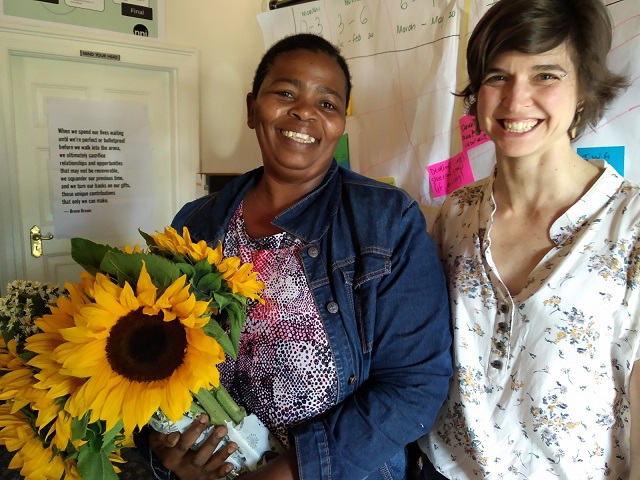What skills do leaders need for transformation and sustainability to be possible?

by Tali Hoffman
What skills do leaders need for transformation and sustainability to be possible? This is the question that the ACDI’s Education Portfolio team, made up of Leigh Cobban and Nondumiso Mginywa, asked during a year of reflective and empowering discussions.
These discussions were prompted by people’s experiences working in soft-funded groups, like the ACDI, where several factors can inhibit sustainability and transformation. The first is that groups like these do not fit the disciplinary models of universities. Instead the inter- and transdisciplinary nature of their work has high transaction costs. By necessity, staff must perform a mix of academic, supportive and administrative tasks. But these non-traditional and hybrid roles are not recognised or valued in promotion systems, nor supported by human resource processes. The prevalence of contract rather than permanent positions also inhibits continuity and stifles institutional knowledge.
These dynamics create an emotional burden on staff, leaving them feeling undervalued, dispensable and insecure, and breeding a type of emotional toxicity in the workplace. Under these circumstances, staff struggle to contribute to the greater purpose and sustainability of their organisation, or to contribute to shared visions for transformation. They also have little opportunity to do the emotional labour needed for transformation to take place – such as unlearning assumptions and beliefs, and becoming open to new world views.
Addressing these challenges
Leigh and Nondumiso set out to disentangle and understand what is like to work in this space, and to find ways of building personal agency, speaking truths, dismantling toxicity, and overcoming assumptions.

In this program they commissioned a Dare to Lead workshop developed by Brené Brown, and presented by Nadine Mayer, where they focused on leadership that can emerge when we work from and through our vulnerabilities. To give voice to all of those in this complex system they held dialogues with the No Name Initiative, focusing on giving space for the various voices in the system and asking what transformative leadership really means in the context of multiple and often contradicting voices. Then they turned their attention to the university, and through a series of seminars with invited speakers considered the broader research and sustainability strategy, the types of research we do and want to do, and the kind of care we need to give to people working in this space.
“I always felt that workspaces ought to be safe spaces to learn, to grow, to be. The Dare to Lead training addressed this, and the No Name Initiative allowed us to speak to our fears and to find ways to address them”, reflected Nondumiso Mginywa, the program’s co-organiser.

Many issues will continue to surface, both big and small.
“I think during the program we mostly dealt with surface issues and were wary of going deeper because we are not used to doing so, and because we are not sure how safe it will be to do so.” said Nondumiso. She added that the training “provided us with tools that will help us to engage with each other about difficult issues. We now know a bit more about each other and about the context we work, and can move beyond our assumptions. It is encouraging to know that the intention to create a safe space is there.”
Transformation is not an end point. It is a constant process that happens at multiple levels – within each of us, within our organisations, and more broadly in society – and we must embrace it. We need to recognise that any pain that is not transformed is transmitted, and manifests as things like fear, anger, and guilt. This is why we need to address our pain, and we can do that by embracing being human, learning to dialogue, and normalising vulnerability emotions.
What’s next

Next Leigh and Nondumiso want to figure out how to operationalise these findings, so they go from being ideal targets, to becoming lived realities in the ACDI. They will consider the behaviours that the team wants to change, and identify mechanisms for achieving this change and for encouraging people to be daring, caring, ethical, and thought leaders. Through this they hope to identify the key leverage points that can bring about social justice and transformation in our institutions, and promote institutional leadership.
Of course, achieving this will also require transformation at a higher level, so the team will also work towards compiling a set of specific recommendations for the university to address the financial, contractual and human resource policies that act against soft-funded institutions and their staff members.